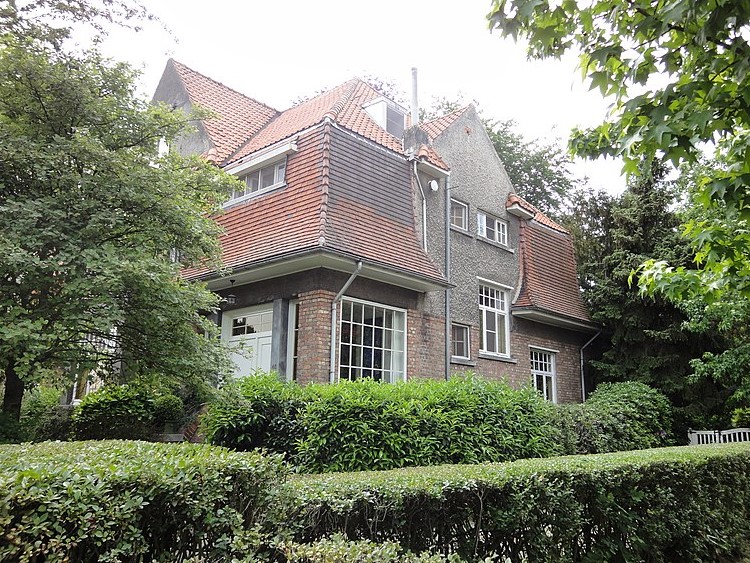In Flanders, Belgium, the law of 1985 implies a tax on real estate. In order to determine that tax, you have to deduct all possible deductions from the cadastral value of your property. In this article I will explain how you can calculate these deduction yourself. It doesn’t matter if you are going to rent out your house or not: for private persons it is absolutely legal and for professionals it is compulsory!
First some theoretical background information: All properties in Flanders (Belgium) get a cadastral value every year by the governmental agency BAG . This cadastral value is simply its market price divided by 1000. For example, 40000€ / 1000 = 40m² [40 square meters]. This cadastral value is mandatory for all properties. You can see your real estate’s cadastral value on the BAG site .

In order to get a price for taxation, this cadastral value has to be adapted. In other words: depending on what kind of house it is and if it is going to be used privately or commercially, its price will differ. The three different types are: “profit”, “co-ownership” and “tied houses”. Every property falls in only one category. There are a lot of things you can deduct from the original cadastral value, but not everything applies to every type of house! If you have a nice garden, that would only apply to co-ownership or tied houses. E.g. I live in a rented house, but it’s still co-ownership because the landlord lives in the same building as me, albeit on another floor. I could deduct things like renovations, double glazing windows etc., but not my garden!
However you can deduct all costs regarding your private house from the “profit” cadastral value before you calculate real estate tax . If possible, you should have this done by an accountant, since there are quite some tricky details to take into account here!
But what is considered a private house? A detached villa with its own piece of land is obviously private property. The same goes for any other kind of housing that is not used commercially (this implies that a part of a house used for commercial purposes would not be considered a personal property, but the whole house would).
The law implies that if you can prove that your housing is private (extensive renovations e.g.), then it’s free to take the deduction. If you want to be sure about this though, consult an accountant! Unfortunately this will cost quite some money…
Since there are so many things to consider regarding “profit” houses, I’ll try to explain this for two examples:
1) You bought an old house and renovated it extensively (e.g. insulated roof & walls, double glazing windows etc.). The total costs of these renovations were €15000 .
2) You bought an already renovated house. The previous owner paid all the renovation costs, so you didn’t contribute to it. You can easily deduct these €15000 from your cadastral value .
These are just two examples of what could happen when you rent out your house. If not explained otherwise in this article, assume that in every other case it applies to both types of houses.
If you sell your property, everything is much more complicated… This law implies that all real estate has a compulsory tax on selling or transfer after death called “succession duty” for the buyer/heirs (yes, they have to pay!).
The calculation of how much tax you have to pay is very complex and cannot be explained here in detail! I’ll try to provide accurate links with all necessary info. If you want to pay as little tax as possible, always ask a certified fiscal expert for help!
So here’s the general rule: if someone offers to buy your house (https://www.bluehomes.com/Immobilien-Belgien/B/de/debut.html) and you accept, you still have two options: selling (the most favourable) or transferring the property by marriage/co-ownership etc.
If you sell it, there are both fixed and variable rates on this succession duty depending on what kind of property it is . The rates are different for private individuals and professionals. For private persons it is a percentage of cadastral value which differs from province to province. In Flanders its 3%, 4% or 5%, depending on how high your cadastral value is . (If you sold your house for exactly the same amount as cadastral value, then of course there’s no tax involved.) If your craft is craftsmanship (i.e. you run a shop or some sort), it depends on how much profit you made with this craft in total between 1 January and 31 December of the year before selling.
The variable rate for professionals is 2/3% of net taxable income divided by number of years since he started his craft . The rest is calculated via fixed rates . To give an example, if I have to pay “succession duty” on my house which has a cadastral value €80,000 the calculation would be the following: 3%: €2400 , 4%: €3280 , 5%: €4000 .
If you transfer property by marriage/co-ownership/whatever, inheritance duty is calculated via fixed rates (the main difference with the previous rule for professionals is that this time it’s 2/3% of cadastral value):
40%: if the transfer concerns your house only (e.g. when splitting up in divorce) or if the person who receives the gift has already received two gifts in total since 1 January of that year.
25%: if the person receiving this gift has not received any gift since 1 January of that year, but at least one in total. 20%: otherwise. If someone inherits their parent’s house and they are under 18 years old, then there are completely different rules for calculation.
2) Since the total costs of these renovations were €15000 , you can deduct this amount from your cadastral value . So, if your house has a current cadastral value of €120,000, then its new cadastral value will be reduced to €85,000 (€120,000 – 15,000 = €85,000). With what is left now you’ll have to pay taxes on it called “property tax”. This is an annual fixed rate depending on the province where your house is situated . The rates are obviously different between provinces and sometimes even within one province. If you don’t know how much property tax you have to pay for your house every year until its sale, check with a certified fiscal expert!
3) If you own your house for more than 10 years, you can deduct 2% of its cadastral value from your income tax . The maximum deduction is €50,000 per household (so if you have two houses and each is worth as much as €500,000, then the most benefit will be €100,000). This system is called “mansion tax” and was implemented in 2012. So only people who bought their house after 1 January 2012. People who’ve owned their house for more than 10 years already don’t need to worry about that anymore.

